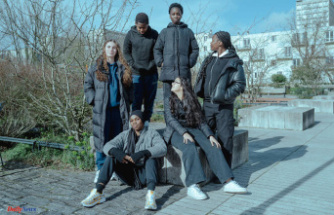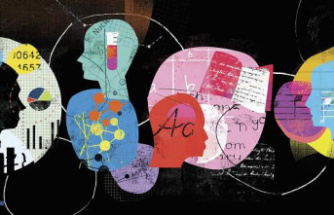The UK's lowest-ranking group of students is the Irish Traveller Community.
This is one of the conclusions of a report on the education of Gypsy, Roma, and Irish Travellers within the UK.
According to the Higher Education Policy Institute's report, the low numbers did not reflect the "huge need" for education in the community.
It was also stated that Irish Travellers faced "many obstacles" when trying to access mainstream education.
According to recent research from the European Union, Irish Travellers are subject to the most discrimination and poverty of any ethnic group within Europe.
Representatives of the Travellers Association told BBC News that there was a "mental crisis" in their community.
For instance, in Ireland, 11% of suicide victims die and the life expectancy for the rest of the population is up to 15 year shorter.
Research by the think-tank Higher Education Policy Institute, (HEPI), focuses on the experiences of members of the Irish Traveller and Gypsy communities in education in Britain.
It was done by Dr Laura Brassington, HEPI. She stated that these communities still face exclusion from education.
The study found that less than 4% Irish Traveller students enroll in higher education in the UK.
This compares to approximately 6% of young people who come from Gypsy or Roma communities, and 37% of all 18 year-olds in England.
In 2020-21, there were only 660 students from Gypsy or Roma backgrounds studying at universities in the UK.
According to the report, the low number of Travellers in higher education should be a concern for the education sector.
There are approximately 250,000 to 300,000 Gypsies in the UK.
These communities comprise 60% of the UK's lowest proportion of ethnicities.
However, the HEPI report indicates that education problems for students from these communities begin earlier.
It also cited an earlier report from the Equality and Human Rights Commission in England that found that children of Irish Traveller, Gypsy, and Roma backgrounds were often bullied at school and had a low level of support.
It also mentioned research by the University of Birmingham that showed just half of British citizens viewed Gypsies as negative.
The HEPI report stated that poor outcomes for Gypsy Roma, Traveller (GRT), students in education must be viewed in the context of prejudice and exclusion GRT individuals face in wider society.
"Gypsies and Roma, as well as Travellers, have worse outcomes than their peers in education and in employment. This can impact their success in mainstream education."
According to separate statistics from the Department of Education (DE), Northern Ireland has approximately 1,120 Irish Traveller students in schools.
This includes 717 primary schools, 271 non-grammar postprimaries, and 15 grammar schools.
According to HEPI, there were approximately 6,200 Irish Traveller children enrolled in schools in England or Wales.
It stated that there was evidence that schools were excluding Irish Traveller students from important exams and that they were amongst the least likely to continue education after GCSEs.
They were also more likely to be expelled from school due to the bullying and racism that children from Irish Traveller families face.
GRT children also suffered from the Covid-19 pandemic, as they were unable to access remote learning devices when schools were closed.
It concluded that improving the access and participation of UK students to education for Gypsy, Roma, and Irish Travellers requires a sustained, long-term focus.
It stated that programmes to increase access for GRT students were currently fragmented and bottom-up.
"There are no national goals and no long-term plan aimed at fair accessibility, fighting the racism GRT communities experience every day or improving GRT outcomes."
The University of Sussex supported the production of the HEPI report.












